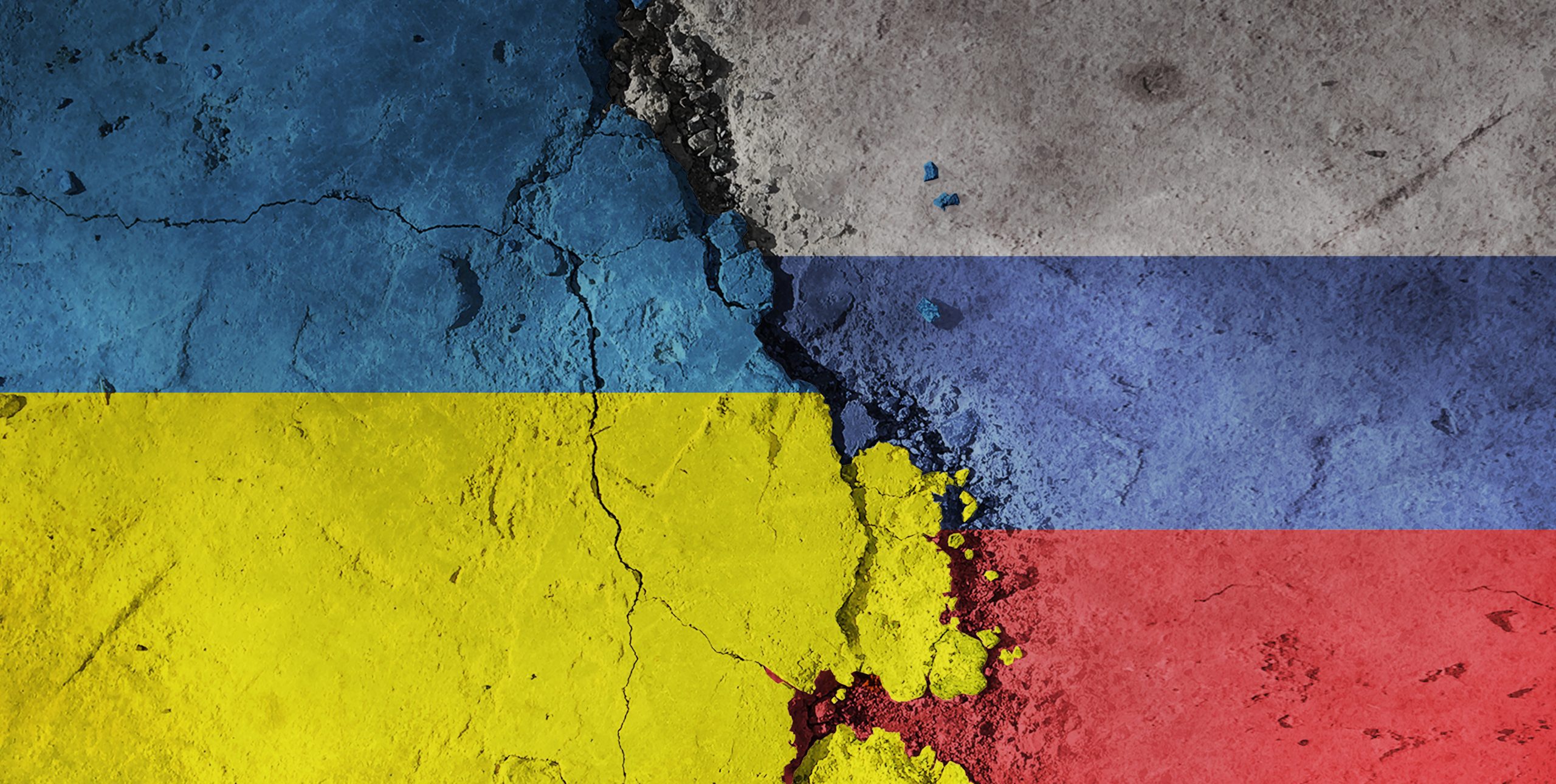Where will the outcome of the twenty-first century be decided? Is it still appropriate to consider Europe and Asia separate in the age of total globalisation? Last August, renowned Russia expert Fiona Hill – formerly a senior White House advisor, now with the Brookings Institution – sat down with Roddy Gow and Martin Purbrick of the Asia Scotland Institute for a wide-ranging discussion of the Eurasian future.
The war in Ukraine
The impacts of the Russian invasion of Ukraine have reverberated across the world. The war there is perhaps one of the opening acts of the Eurasian century. ‘The war … is an epoch-making event on a global scale’, says Hill. Already the breadbasket of Europe, Ukraine was also a major producer of seed oils and fertiliser and retained significant industrial capacity from the Soviet era. Before the invasion, Ukraine was a key player in global commodities markets, and ‘the subsequent knock-on effects are reshaping our thinking on a whole host of geopolitical and geoeconomic issues’.
The war has been particularly disruptive to global energy markets, as exports of Russian hydrocarbons have been restricted, exposing European vulnerabilities. Shortly after Hill’s conversation with the Asia Scotland Institute, the NordStream 2 pipeline – supplying Russian gas to Germany – was sabotaged, further worsening the European energy crisis.
Asia has also been affected. Before the invasion, China was the biggest foreign investor in Ukraine, pouring billions into heavy industry and agribusiness as part of the Belt and Road programme, and will presumably play a major role in postwar reconstruction. Western-aligned Asian nations, including Singapore, Japan and South Korea, have all sanctioned the Russian government. However, many Asian nations – most prominently India and Indonesia – are remaining studiously neutral.
What does China think?
China, says Hill, is likely to be watching the war in Ukraine very closely. There are close parallels between Ukraine and Taiwan: ‘the Chinese tend to see Taiwan in the same frame as the Russians see Ukraine – a piece of their territory that got away’. However, the situation in Taiwan is far more delicate. Western powers have not officially recognised Taiwan as an independent country, unlike Ukraine. China is also far more economically integrated with the West than Russia, and the consequences of action in the Taiwan Strait would be dire. ‘We need to be very careful about how we handle this’, says Hill.
The war in Ukraine is the biggest recent challenge to the Western-led rules-based international order that has prevailed since 1945. The Chinese government senses an opportunity, Hill believes. Though China has greatly benefitted from the rules-based order, now ‘they want to be rule-setter, not a rule taker’. From the creation of alternative financial institutions like the Asian Infrastructure Investment Bank to greater involvement in existing international bodies, ‘China wants to be the next Bretton Woods creator’. While Russia is best thought of as a rule-breaker, Hill argues, ‘able to marshal its natural resources to make an impact’ but otherwise a declining power, China is a ‘systems challenge’, looking to build an alternative world order. The war in Ukraine may provide this chance.
Russia, China and the pivot to Asia
From 2012 onwards, American policymakers began to talk about a ‘pivot to Asia’. There would be a greater focus on China, and a simultaneous move away from Russia. Implicit in this policy was the idea that Russia was a European nation. This was completely mistaken, Hill believes: policymakers pivoting to Asia are ‘just pivoting to a place where Russia is as well’. Russia retains a significant presence in the Asia-Pacific, anchored by its fleet in Vladivostok. It also holds on to the Kuril Islands and Sakhalin, annexed in the last days of the Second World War – ostensibly as a check against Japanese regional ambitions. However, Hill believes the islands are really kept as a reminder to both China and the United States that Russia still has a role to play in the North Pacific.
Implications of the Sino-Russian ‘unlimited friendship’
Immediately before the February invasion, Russia and China announced an ‘unlimited friendship’. However, China has since shied away from offering full support to the Russian war effort, leading Russia to begin sourcing weapons from Iran instead. Overall, says Hill, ‘China have not done as much as they might have … we haven’t seen China leaping in to prop Russia up.’
Ultimately, cracks in the unlimited friendship may become apparent. China is far richer and more powerful than Russia; it is hardly a partnership of equals. Neither can the two escape history. Hill notes that Russia lies on vast swathes of territory that were once Chinese: land China may want back, ‘when Russia is weaker’. With the withdrawal of forces from the Russian Far East and across Central Asia to fight in Ukraine, Russia’s eastern frontiers have become increasingly vulnerable. Russia is also wary of increased Chinese activity in the Arctic, traditionally a Russian sphere of influence.
The balance of power in Central Asia is also rapidly changing. While China has been the dominant economic force in the region for some time, Russia traditionally saw itself as the security guarantor, as its January 2022 intervention in Kazakhstan proved. However, it now appears that Russia is struggling to fulfil this role in the wake of the invasion of Ukraine. Hill points to Tajikistan. After the withdrawal of the Russian 201st Motorised Division from garrison duty there, the Tajik government has apparently begun contemplating an alternative security guarantee with China instead, driven in part by fears – widely shared in the region – of the potential for instability arising from the Taliban’s return to power in Afghanistan. ‘China’s power [in Central Asia] is now more significant’, she says, and Western policymakers should be aware of this. ‘Over time’, Hill believes, ‘Russia may feel much more discomfited’ by the rise of Chinese power. The Sino-Russian unlimited friendship may not be all it appeared to be in February 2022.
The Turkish question
Turkey has come to play a crucial role in Eurasian affairs, due to its control of access to the Black Sea. This is certainly true in Ukraine: Turkey brokered a limited ceasefire to allow grain ships to leave Ukraine, while the Bayraktar drone – something of an icon of the war – is a Turkish export. Combined with its ongoing intervention in Syria, and occasionally contentious role in NATO, Turkey cannot be ignored.
Turkey is a historic rival of Russia in the Black Sea. However, Turkey is vulnerable to Russian leverage, due to its reliance on its own version of the NordStream pipeline, known as TurkStream. Under the Erdogan government, says Hill, Turkey has soured relations with all its neighbours bar Azerbaijan, leaving it especially dependent on Russian hydrocarbon exports.
Turkey is also at risk from climate change. While Russia might benefit from increased global temperatures opening up new farmland, Turkey will suffer greatly, losing agricultural capacity and becoming more drought-prone. Turkey’s own future as a regional power is in question because of this, Hill believes.
Latin America, Asia and the non-aligned nations
While Western responses to the Russian invasion of Ukraine have been fairly unified – with the possible exceptions of Germany and Hungary – much of the rest of the world has remained neutral. ‘There’s a lot of countries that don’t want to get caught up in this’, says Hill, and while ‘the US is trying to depict [the war in Ukraine] as autocracy versus democracy, there are a lot of countries … that describe themselves as “systems neutral” now that we’re out of the Cold War’.
This is especially true in Latin America, where many countries retain long memories of American intervention. ‘The US has been very neglectful of huge swathes of the world since the end of the Cold War’, Hill says, in contrast to other great powers. ‘The US doesn’t really have a policy towards Mexico, for example – but Russia does’. Russia has become particularly skilled in pushing disinformation that favours their own narratives, Hill notes, especially in Latin America and Africa. By many measures, she says, ‘[the West] have lost the information war in these areas already’.
While there have ultimately been few consequences for those countries remaining neutral about the war in Ukraine – though India will likely find it impossible to continue buying Russian weaponry, as a result of US sanctions – this may not always be the case. As increased US-China confrontation looms, Hill says, ‘a lot of countries are worried that in the future they’ll have to make a choice they don’t want to make’.
Future directions of American policy
Hill briefly spoke about potential future directions of American policy in the event of a change in government following both the 2022 midterms and 2024 election. Support for Ukraine has increasingly become a partisan issue in the US. But, Hill says, ‘generally there is widespread support for Ukraine, if not necessarily for Biden’. Despite vocal objections from a small number of Republican congress members, major policy changes before the 2024 election are unlikely.








